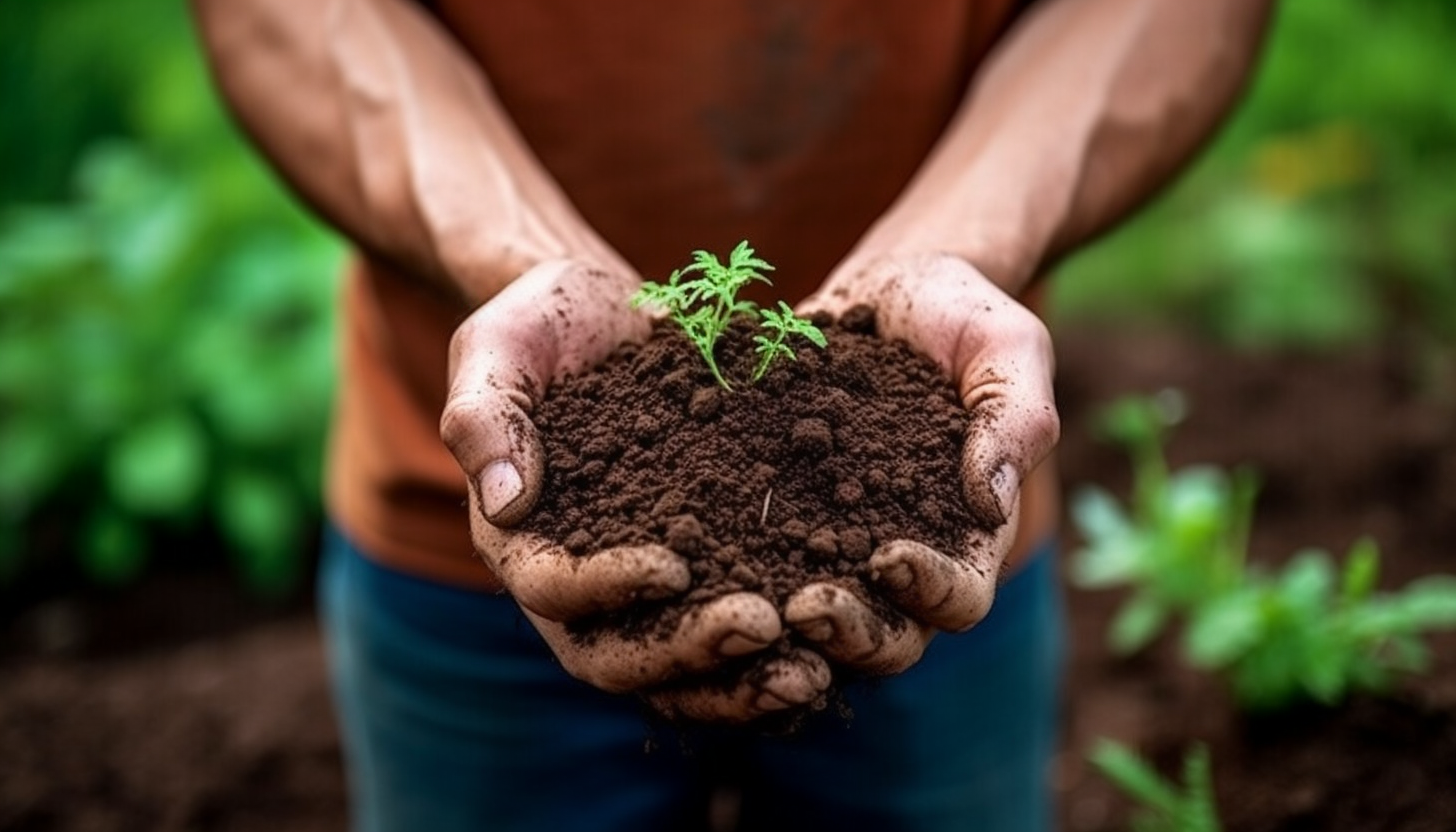P
May 28, 2023
Grow a Beautiful Garden with the Right Soil: Types, Amendments and Care Tips
#Gardening
#Soil
#Types
#Amendments
#Care Tips
#Plant Growth
#Soil Health
#Soil Structure
#Drainage
#pH Levels
#Soil Testing
#Soil Amendments
#Soil Maintenance

right-soil-thumbnail
Understanding Garden Soil
When it comes to growing a beautiful garden, the quality of the soil is often overlooked. However, it plays a crucial role in the health and growth of your plants. Understanding the different types of soil, their properties, and how to amend them is essential for successful gardening. Soil is the foundation of a thriving garden. It not only provides a substrate for plant roots to grow, but it also influences the quality of the water and air in the environment. The quality of soil in your garden directly impacts the health of your plants. Soil is a complex mixture of organic matter, mineral matter, gases, and water. The organic matter includes plant and animal remains, while the mineral matter includes sand, silt, clay, and minerals. The mineral content of soil largely determines its fertility and its ability to hold water and nutrients.
Soil Types
There are several types of soil found in different parts of the world. Each type has its own unique properties, and understanding these can help you make better decisions about soil management. Clay soil has small particles that bond together tightly, making it dense and sticky. It is often rich in minerals and holds water well, but it can be difficult to work with. On the other hand, sandy soil has large, loose particles that don’t hold together well. It drains well and is easy to dig, but it lacks nutrients and water retention. A loamy soil, on the other hand, is a balanced mix of sand, silt, and clay. It is often found in fertile agricultural areas and is the ideal soil for gardening.
Soil Amendments
Soil amendments are materials that are added to soil to improve its properties. They can improve drainage, increase fertility, and improve the structure of the soil. Organic matter is the most important amendment in any garden soil. It improves drainage, increases fertility, and improves the structure of the soil by providing spaces for air and water. Compost, manure, and leaf litter are all excellent sources of organic matter. Clay soil can be improved by adding sand or grit, which increases drainage. On the other hand, sandy soil can be improved by adding organic matter to improve water retention and fertility.
Care Tips
Once you’ve chosen the right soil for your garden, it’s important to care for it properly. The health of your soil directly impacts the health of your plants. The first step is to improve the soil’s structure. This can be done by adding organic matter, mixing the soil thoroughly, and encouraging good soil-parsley bacteria activity. Next, ensure proper drainage by adding organic matter, mixing the soil, and improving the quality of the topsoil. Finally, maintain the pH levels of your garden soil. Acidic soil can be improved by adding lime, and alkaline soil can be improved by adding sulfur. Regular soil testing and soil amendments can help maintain the health of your soil, leading to better plant growth and a more beautiful garden.


